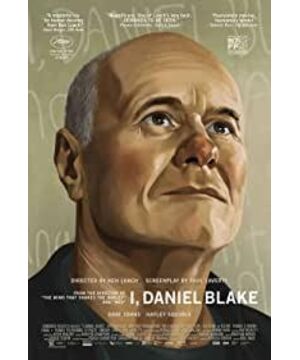We seem to be walking in a false mantra. The warmth, purity and softness of the story picture point to a huge fragility. The film tells the process of a carpenter suffering from heart disease and losing his wife's application for social benefits. The compact editing reflects the lengthy and lengthy application procedures and processes. The film doesn't focus on the direct conflict between Blake and the system, but instead focuses on the characters.
A carpenter who is always decent. Even when he had to sell his furniture later, he didn't throw away the toolbox and hand-polished tropical fish wind chimes; a persistent and serious learner. Even in the process of applying for social security and being frustrated repeatedly because of not being able to use the computer or the Internet, he still insists on going to the library or neighbor's house for help, learning to fill in the application form, and striving to safeguard his due rights and the dignity of an honest citizen; sometimes He is also like a serious social observer, walking in the lives of others, enthusiastically helping a single mother with two children to repair the facilities of the rental house and take care of the children.
The policy maker in the film seems to be a party to blame that can never be traced. In this existing system, everyone seems to be performing their duties accurately, but few people question and challenge the systemic dilemma, and some even seek benefits from it and become an accomplice to the system. Sickness and hunger turn into trouble and shame. The protagonist's heart disease, to a certain extent, hints at the deepest contradictions in society. Personal fate is involved in unreasonable policies, or becomes its collaborator, and at the same time, his self-esteem is hurt. What is even more helpless is that in the film, people who could have been comforted by each other also hurt each other because of conflicts that they could not resolve.
View more about I, Daniel Blake reviews











